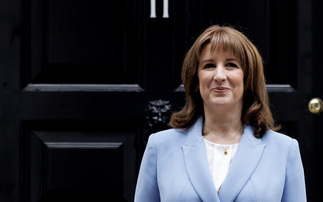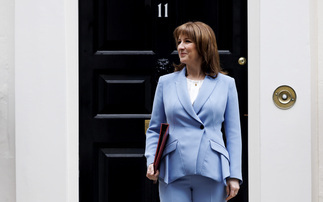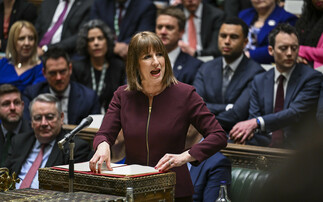
As the carbon pricing market moves past nascency into a fully operational mechanism for holding companies to account on climate, some sectors are set to feel the heat from financial penalties introduced on carbon emissions.
Speaking at the Sustainable Investment Festival, Vincent Denoiseux, head of investment strategy at Amundi ETF, index and smart beta, said that although the current market for carbon pricing was fragmented, all projections point to the price of carbon increasing significantly over the next 10-15 years.
Currently, just 23% of global carbon emissions are charged using carbon taxes or emissions trading systems (ETS), he said. Carbon was trading at approximately €76 as of 27 July 2022.
Efficient lever
The International Monetary Fund has previously said carbon pricing was "the most powerful and efficient [lever], because it allows firms and households to find the lowest-cost ways of reducing energy use and shifting toward cleaner alternatives".
Last year it proposed an international carbon price floor (ICPF) agreement that would call on the world's largest emitters to pay a floor price of $25-$75 per ton of carbon, dependent on their economic development.
Russia's invasion of Ukraine has intensified the strain between making progress on climate change mitigation and energy affordability.
Amid an ongoing energy crisis and Russian supply cuts, the EU has been increasingly looking to overhaul its central emission reduction tool - the ETS.
Lawmakers reached an agreement on reforms to the market in May, including scaling black plans for a new mechanism to impose Co2 costs on fuel suppliers for buildings and transport.
Threat to returns
Denoiseux explained investors needed to be aware of carbon pricing risk in order to fully appreciate the link between climate and the pursuit of optimal returns.
Using S&P Global/Trucost data, Amundi revealed in an analysis that the unpriced carbon cost for companies - or the difference between the amount a company pays for the carbon price today and the amount it will pay in future - posed significant risk to earnings for the constituents of the global equity indices.
In a "delayed action" climate scenario, "EBITDA at risk" was particularly notable across the energy, materials and utilities sectors, he said. Utilities alone could see 50% of its average EBITDA wiped out by 2040, subject to changes made to emissions reductions and business models.
In total, 16% of the MSCI World index's enterprise value was at risk because of the carbon price, the analysis revealed.
Role of benchmarks
The Paris-aligned and Climate Transition benchmarks are somewhat of an antidote to that scenario, Denoiseux said, as they aim to immediately reduce carbon emissions for a given exposure by 50% and 30% respectively and align portfolios with a reduction trajectory of approximately 7% a year.
According to the head of ETF investment strategy, as companies reduce carbon emissions by 50% in line with Paris-aligned benchmarks, earnings at risk figures were slashed by 50%.
"We saw a fairly homogenous result across every region: if investors start with a climate benchmark, they can have significant financial risk reduction in their portfolios in addition to the impact they are having by reducing carbon emissions.
"We see the news flow on carbon pricing every single day. Here, we have taken a long-term view of what it might mean for the earnings of companies in a portfolio and there is a very significant impact from a financial perspective for these companies.
"With a Paris-aligned benchmark, you are reducing your carbon footprint by 50% and that comes with a very significant risk reduction for the long-term horizon."
This post is funded by Amundi ETF













